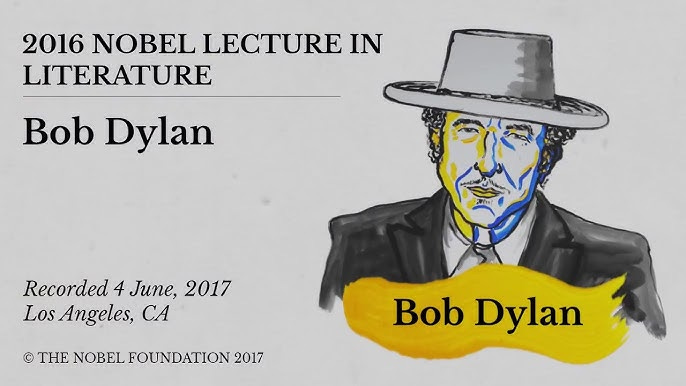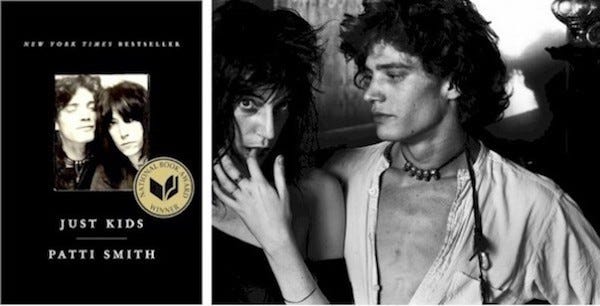Letter from a Reader 11.23.24
Why old rockers keep touring, and two of my favorite books on music

Why do old rockers keep touring?
You might think they do it for the money, and that’s often part of it, the British music journalist David Hepworth says in his new Hope I Get Old Before I Die: Why Rock Stars Never Retire. They may have made a fortune over the years, but that doesn’t mean they’ve held onto it.
But there’s more to it, and it doesn’t involve a need for more recognition, an Irish Times review of Hepworth’s book suggests. Among the rockers who’ve toured in 2024, Bob Dylan has won a Nobel Prize and Mick Jagger, a knighthood.
Tony Clayton-Lea quotes Hepworth as saying, aptly, in the Irish Times:
“It doesn’t matter who they are, and it doesn’t matter how much or how little money they’ve got. Musicians live for the next gig—and having a date in the diary, whether it’s next year or beyond, is pivotal. That’s their focus.”
A larger question is: Why do fans keep turning out to see rockers like 83-year-old Dylan and 81-year-old Jagger?
You can’t attribute it just to nostalgia or a desire to recapture a faded youth, not when their concerts draw throngs born too late to have seen the stars on their first go-round.
A more plausible explanation came from Alexis Petridis in the Guardian after seeing Dylan this month at Royal Albert Hall in London.
The singer, he said, “decided many years ago that the best way of coping with the monumental weight of his own oeuvre is to keep hacking it into new shapes.”
Fans saw examples when Dylan did “It Ain’t Me Babe” at two stops on his U.K. tour this month.
At Usher Hall in Edinburgh, that warhorse became “a light waltz,” Scotsman arts writer David Pollock said. At Royal Albert Hall, it resolved into “an affectingly weary version of ‘It Ain’t Me Babe,’ the original’s sneer transformed into a sigh,” Petridis wrote in the Guardian.
“Hacking” might be too strong a word for what some artists do. But like novelists who rework familiar themes throughout their careers, the best musicians keep finding ways to add light or shadow to old songs and give them new shades of meaning. In that way they keep their work, as another Dylan hit has it, “Forever Young.”
Two of my favorite books on music
When I started this newsletter, I wanted to keep most of it free but find a way to thank paid subscribers and help fund the free content.
My solution was to have a small section just for paid subscribers. It’s called “100 Books I Like” and has capsule reviews—100 words or fewer—of 50 novels and 50 nonfiction books, followed by a line or two about any honors the book or author has received. Similar stories on books for children and more specialized topics will follow in the coming months.
To show how I define “capsule,” here are the reviews of two of the music books on my “50 Nonfiction Books I Like” list. I’m reproducing them here without editing except to fix typos.
Just Kids: An Autobiography by Patti Smith (2010)
“Nobody sees as we do, Patti,” the late photographer Robert Mapplethorpe told Patti Smith during a friendship that began in the late ’60s and ended with his death from AIDS more than two decades later. Smith shows the depth of their shared vision in a memoir set against the backdrop of their shabby East Village apartments and haunts such as Coney Island, Washington Square, and Max’s Kansas City. Unlike most rock stars, she writes with a panache that has charmed even those who never took to her music or his black-and-white photos with bondage-and-discipline motifs.
Book honors: Winner of a National Book Award and finalist for a National Book Critics Circle Award. Author honors: Rock & Roll Hall of Fame
The Lives of the Great Composers by Harold C. Schonberg (1970)
Mozart died penniless. Handel went blind a decade after writing Messiah. Beethoven worked amid chairs covered with dirty dishes. Schonberg believed music reflected the lives of its composers and shows how in lively biographical sketches of more than 50 of the world’s greatest composers. One charm of his book is that he describes with equal ease the often tragic circumstances of artists’ lives and the technical aspects of their music by showing, for example, how Mozart creates a sense of anxiety in the overture to Don Giovanni with “a few diminished seventh chords and a D minor scale.”
Author honors: Winner of the Pulitzer Prize for music criticism at the New York Times
These are far from the only books I like about music, and if you’d like to read about others, hope you’ll stay tuned.
Notes:
https://www.amazon.co.uk/Hope-Get-Old-Before-Die/dp/1787632784
https://www.nj.com/live-entertainment/2024/03/16-classic-rock-legends-going-on-tour-in-2024.html
https://www.nobelprize.org/prizes/literature/2016/dylan/lecture/
https://www.nytimes.com/2010/11/18/books/18awards.html





Grace Slick, who just turned 85, famously said, no one over 50 should be Rocking. Yet, it seems that these 'farewell tours' for The Eagles, Rod Stewart, Elton, etc., never end. Elton made two stops in Detroit on his "Goodbye Yellow Brick Road," tour. Sade just released a new album. And Taylor Swift is fast approaching 40. LOL
Certainly Mick Jagger and Bob Dylan are special cases--and Sir Paul too.
I think of Leonard Cohen, who did his last two tours to fund the lawsuits he had going against his former manager, and Dick Dale, who kept touring simply to pay his medical bills. Kind of sad, but in Cohen's case those shows (one of which I was fortunate enough to see) were almost nowhere seen as anything but triumphant.